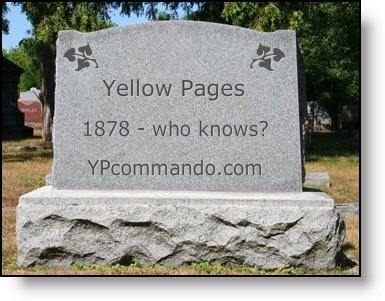
The printing industry is understandably anticipating with a great deal of interest the outcome of print company PMP’s mid-year expiry of its Sensis contract to produce the Australian White Pages and Yellow Pages directories. The less positive pundits expect to see a non-renewal as the final throes of what they regard as a print dinosaur.
The writing on the wall appears large and clear after Google signed an agreement with Telstra’s Sensis subsidiary recently to integrate the data from Yellow Pages business listings into its all-seeking search engine. At the same time it announced a new iPhone application that runs a voice translation service which will enable users to speak to a recorded voice, ask for the name of a service or store near their location and have it sent to their phones.
When this is factored alongside the seemingly unstoppable proliferation of smart phones (close to 40 million worldwide last year alone) the demise of the directory’s print version takes on a certain inevitability. It may not be today, it may not be tomorrow, but that inevitability defies denial.
The numbers of unwanted phone books (often not even unwrapped from their shrink packs) on front door steps and in apartment building lobbies attests to the lack of usage by today’s householders. According to Bill Gates, Yellow Pages usage among people below 50 will drop to near zero over the next five years.
“Left to pulp out in the rain and abandoned in mountainous mailroom piles, phone books don’t get much respect any longer,” he told a Microsoft conference last year.
Propping up computers
The loss, in printing industry terms, of the value of the PMP contract is reflected in the numbers. The last edition of the printed Yellow Pages ran to nine million copies. America’s 187 million copies became the most reproduced book of all time. The rapid advances from the conventional desktop telephone to the digital world will almost certainly parallel the demise of the bulky banana bannered books. One commentator pointed out recently that, according to Sensis, 25 per cent of all phone books are never recycled but end up as doorstops or propping up computers.
Perhaps these users are the only demographic that’s going to find it hard to lose the phone book, he suggested. “Sensis is losing its way and needs a better strategy that increases relevance, brand visibility and usability for a complete multiplatform environment,” was his summation.
It may well be “losing its way”, and one way it may equally well try to find its way back is to feed the fears of printing industry pundits who are predicting that when the current PMP contract expires (its most enthusiastic spruiker, MD Brian Evans, left the company unexpectedly recently) Sensis will take the print order offshore. While a Sensis spokesman confirmed that some of the company’s Car Directories using the familiar Yellow Pages format have already been printed in Asia, he declined to comment on the future of the PMP contract.
Mourning garb
“Sensis is currently working to explore a range of measures to meet our long-term goals; this work with PMP and other parties is still under way,” he said. “Meanwhile, Chullora plant employees are understandably worried. With a mere four months to go, it appears PMP management has provided zero information to them.
Comment below to have your say on this story.
If you have a news story or tip-off, get in touch at editorial@sprinter.com.au.
Sign up to the Sprinter newsletter


